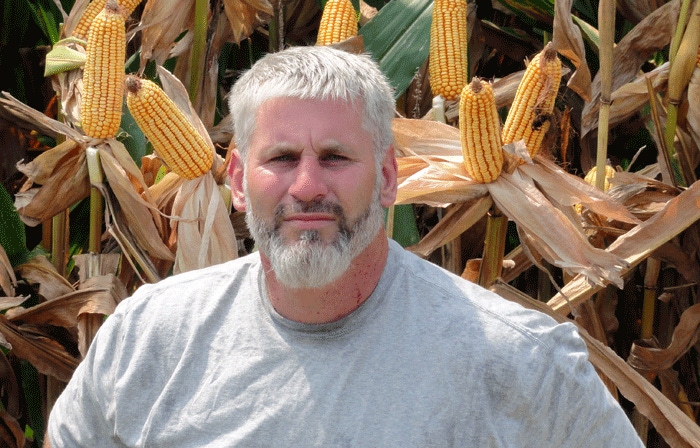
Georgia’s Randy Dowdy hits 503-bushel corn to top national contest (variety update)
Georgia farmer Randy Dowdy continues to lift the corn yield bar, clocking 503 bushels per acre this year to top the National Corn Growers Association National Corn Yield Contest, setting the highest yield ever in the 50 years of the competition.

Georgia farmer Randy Dowdy continues to lift the corn yield bar, clocking 503 bushels per acre this year to take top spot in the National Corn Growers Association National Corn Yield Contest, setting the highest yield ever in the 50 years of the competition.
The first-generation farmer began farming eight years ago but only started growing corn in 2008, and in the last few years has been at the top or near the top of several national corn yield contest categories with more than 300 bushels per acre in 2011 and 2012, then 400 bushels per acre in 2013 and now with the record-topping 503 bushels per acre in 2014.
He hit the record 503 bushels with DKC 62-08 at a plant population just north of 50,000 per acre. Because of bad morning glory infestation, which has become a problem weed for corn in Georgia over the last few years, he desiccated the corn with paraquat to clean out the weed prior to harvest and put the combine in the field the last week of July.
Corn hybrids today, it is said, can reach 600 bushels per acre or much more, and he believes it. He says once a grower opens a bag of corn seed, yield potential is either retained or lost with the grower’s choices until harvest. “If you’re late in supplying the corn plant’s needs, then understand that subsequent yield loss is irrevocable,” he says.
The 2014 growing season didn’t start easy for Dowdy or any farmer in his area in Brooks County, located in southwest Georgia. The area received more than 30 inches of rain between March and May, with several double-digit rain events, which complicated fertility plans, fungicide applications and weed control.
And he is not one to rest on his yields. Farming changes and farmers who want to go for high yields have to be willing to change, said Dowdy, who has become a high-yield crusader and public speaker in recent years. He also topped 110 bushels per acre in soybeans on his farm this fall, smashing the Georgia soybean record by more than 30 bushels.
He plans to keep “experimenting” on his farm in 2015 to shoot for even higher, more consistent yields. “You have to be a researcher on your farm to increase your yields,” he said. “And I’ve made mistakes, but I’ve learned from every one of them.”
Dowdy plans to continue in 2015 to spread risk across his fields by planting different hybrids, investigating population numbers, banding fertilizer and doing more experimenting with row spacing such as 30 inches versus 36 inches and even 15 inches versus 20 inches and using deep tillage.
The National Corn Yield Contest is NCGA’s most popular program for members. Participation in the contest remained strong in 2014 with 8,129 entries received. A contest entry must be at least 10 continuous acres of one hybrid number. Recording yields of more than 400 bushels per acre this year were David Hula of Charles City, Va.; Craig Hula of Charles City, Va.; and Steven Albracht of Hart, Texas. The 18 winners in six production categories had verified yields averaging more than 383.6 bushels per acre, compared to the projected national average of 173.4 bushels per acre in 2014.
“While this contest provides individual growers a chance for good-natured competition with their peers, it also advances farming as a whole,” said Don Glenn, chairman of NCGA’s Production and Stewardship Action Team. “The techniques and practices contest winners develop provide the basis for widely used advances that help farmers across the country excel in a variety of situations, including drought. This contest highlights how innovation, from both growers and technology providers, allows us to meet the growing demand for food, feed, fuel and fiber.”
About the Author(s)
You May Also Like





